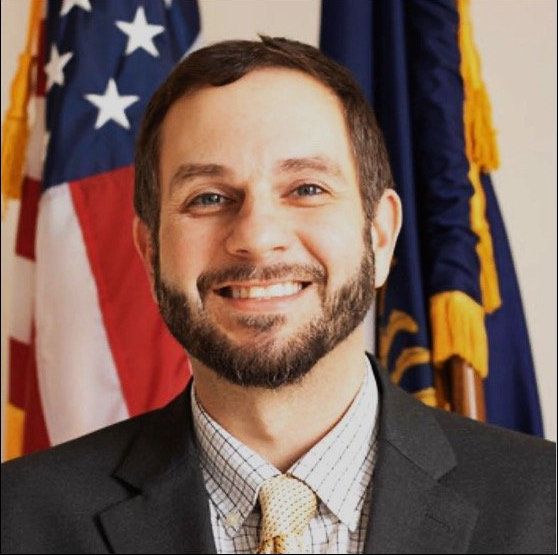The Secretary of State’s office finally released official 2022 voter registration data based upon age and sex. I was curious how young voters are registering, especially in urban vs. rural areas of Kentucky, so I used the data to create charts using:
- Statewide registration (urban and rural - mixed)
- 6th district registration (mixed)
- 3rd district registration (urban)
- Selected County registrations
- Fayette County registration (urban)
- Warren County registration (mixed)
- Rowan County registration (mixed)
- Campbell County registration (mixed)
- Calloway County registration (mixed)
First, statewide voter registration data:
What I found surprising statewide is the decreased number of our young population (especially Gen Z) registering as Democrats (some of which registered as “other”). We see more of a R/D gap with 17-24 year olds than any age range. Anecdotally, that didn’t make much sense to me, so I wanted to dig deeper and look at urban areas specifically.
So take a look at the chart from the 6th Congressional District, which includes Fayette plus 15 counties: Anderson (part), Bourbon, Clark, Estill, Fayette, Jessamine, Madison, Montgomery, Powell, Scott, Woodford, Bath (part), Fleming, Nicholas, Garrard, Mercer.
More young people are registering as Democrats in the 6th, but still not as much as some of the other age ranges. Perhaps this shouldn’t be a surprise given a significant portion of this district is rural, and the results of recent 6th district elections to unseat Andy Barr have been unsuccessful.
What about the 3rd Congressional District (mostly Jefferson County)? Because this district comprises mostly liberal Jefferson County, perhaps this is the best litmus test of whether or not young people in urban areas are registering Democrat in higher numbers than Republican.
Ah, this makes more sense. The trend here is clearer: there are more Democrats and fewer Republicans as you go from older to younger (note the Republican registration trendline decreasing and Democratic trendline slightly increasing with younger age as well as the “other” increasing with younger voters).
Given these data regarding urban vs. rural, this begs the question: “What if we isolate only Fayette County in the 6th?”
Fayette is similar to CD3. More young people are registering as Democrats and/or “other” while fewer young people registering as Republican (again note the trendlines).
So, what does this tell us? We know that folk wisdom suggests that people become more conservative as they age, but those data are inconclusive at best and depend upon many factors. The trends in urban areas are compelling. One question that has been posited, “Will urban areas of Kentucky eventually trend the way of Atlanta and other urban areas in Georgia, for example, and lead to an increase in Democratic registration and ultimately more Democratic wins?”
Kentucky has become increasingly more urban over the last 60 years to the point now that over half of our population is urban (44% of which is Lexington and Louisville Metro) but we are not yet Georgia.
Caveats: We must remember that voters in urban areas and rural areas are not monolithic, and voter registration does not equal actual votes! As we have discussed in previous research, Kentuckians demonstrate their political independence when in the voting booth, so we have to be careful with general conclusions.
Some have suggested that (young) Democrats will start with winning the suburbs. Let’s start with counties that have mid-size cities: Warren, Rowan, Campbell, and Calloway, and see if there’s evidence for that hypothesis.
The “all ages” registration in Warren County is practically identical, with the youngest voters trending slightly Democratic and trending heavily “other,” while Republican voters are fewer in the youngest ages.
Rowan County historically has been a Democratic stronghold. But it is very interesting to note that the D/R gap tightens for younger voters, and registrants in the “other” category are growing. Of particular interest here is that “all ages” has a higher percentage of Democrats than younger voters. Not a great trend if you are a Democrat in Rowan County.
In Campbell County, Republicans outnumber Democrats across the board, but notice that the trend is slightly in young Democrats’ and young others’ favor.
Lastly, there’s Calloway County in which Republicans and “other” are on the uptick with the youngest voter group, while Democrats see a slight decline.
I present mixed data on the mid-size city-trending-Democratic hypothesis. I suspect, though, if we were to only use city-limit data, the trend would more clearly favor Democrats because it would exclude the more rural areas of those counties, but those data are not readily available.
It is important to remember that Lexington (Fayette) and Louisville (Jefferson) provide 44% of the voting population and these areas vote heavily Democratic. If smaller urban areas across the state join these cities to provide above average Democratic turnout and Republicans have average (or lower) turnout, in theory based upon current registration, Democrats would win by a small margin. Republics only hold a 0.6% registration advantage, but as we know from post-Obama and post-Trump voting history, Kentucky elections have consistently trended Republican (as noted in this article I wrote in November), but have a level of unpredictability (i.e. gubernatorial election of 2019).
In summary, only time will tell if this young urban trend will eventually equate to Democrats winning in Kentucky again, and there are lots of variables not covered here; but, given the LGBTQ+ rally at the Capitol Annex last week, which made international news (BBC), I have faith in our next generation of Kentucky voters. I was a volunteer organizer at this rally and witnessed not only organization and professionalism, but the passion of Generation Z, millennials, and other Kentucky voters. It was noted many times that the majority party in Frankfort does not represent them. Anecdotally, it seems Gen Z is paying closer attention to state politics. This gives me hope for the future of our Commonwealth.
--30--








